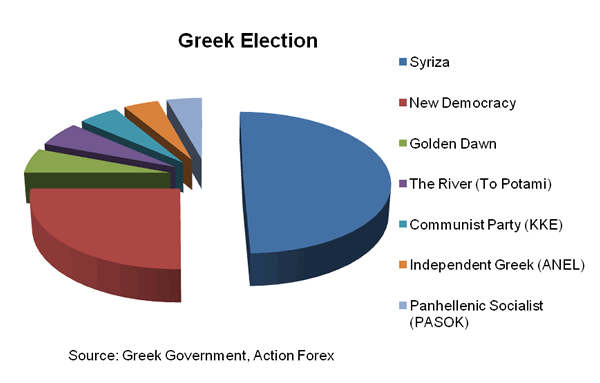Greek Election – Anti-Bailout Coalition Government Raises Financial Instability
The far-left Syriza party won Greece's general election by a larger-than-expected margin. Securing 149 of 300 seats, Syriza defeated the incumbent New Democracy Party but still fell short of an absolute majority. The latest news suggested that Syriza would form a coalition government with Independent Greek, a small right wing party which also strongly opposes many of the strict conditions imposed in the bailout program. Initial market reaction appeared limited as the election outcome had been largely anticipated. However, in the medium- to long-term, the economic implications to the Eurozone can be far-reached.
Syriza party promises its voter to end to Greece's austerity measures and wants to renegotiate its debt. Alexis Tsipras, Syriza's, and Greece's prime minister to-be, noted in his victory speech that 'the Greek people have given a clear, indisputable mandate for Greece to leave behind austerity'. He also promised to negotiate a 'mutually acceptable' solution with the country's lenders. While Tsipras has indicated that Greece would stay in the Eurozone, the market remains worried about a Greek debt default and a possible exit from the 19-nation bloc.
The problems arisen after election of an anti-austerity government can be huge. The ongoing Troika review would likely be delayed further as the reform momentum might be slower and efforts on fiscal consolidation might be less. Yet, we don't see much bargaining power the new government would have to negotiate with the Troika. Consider the current situation, 4.3B euro of debt repayments would be due in March and over 6 B in July and August. Unless Greece chooses to default its debts, it would need to seek more loans and likely a new precautionary credit line. Moreover, Greece needs a successful conclusion of the Troika review for extending the current waiver for the collateral eligibility which expires at the end of February. Moreover, inclusion of Greece in ECB's newly announced QE program would be good news for the debt-ridden country but this would only materialize if the review of country's bailout program is completed.



